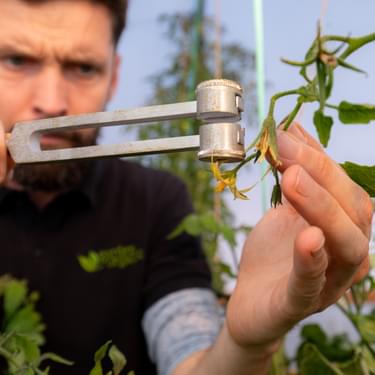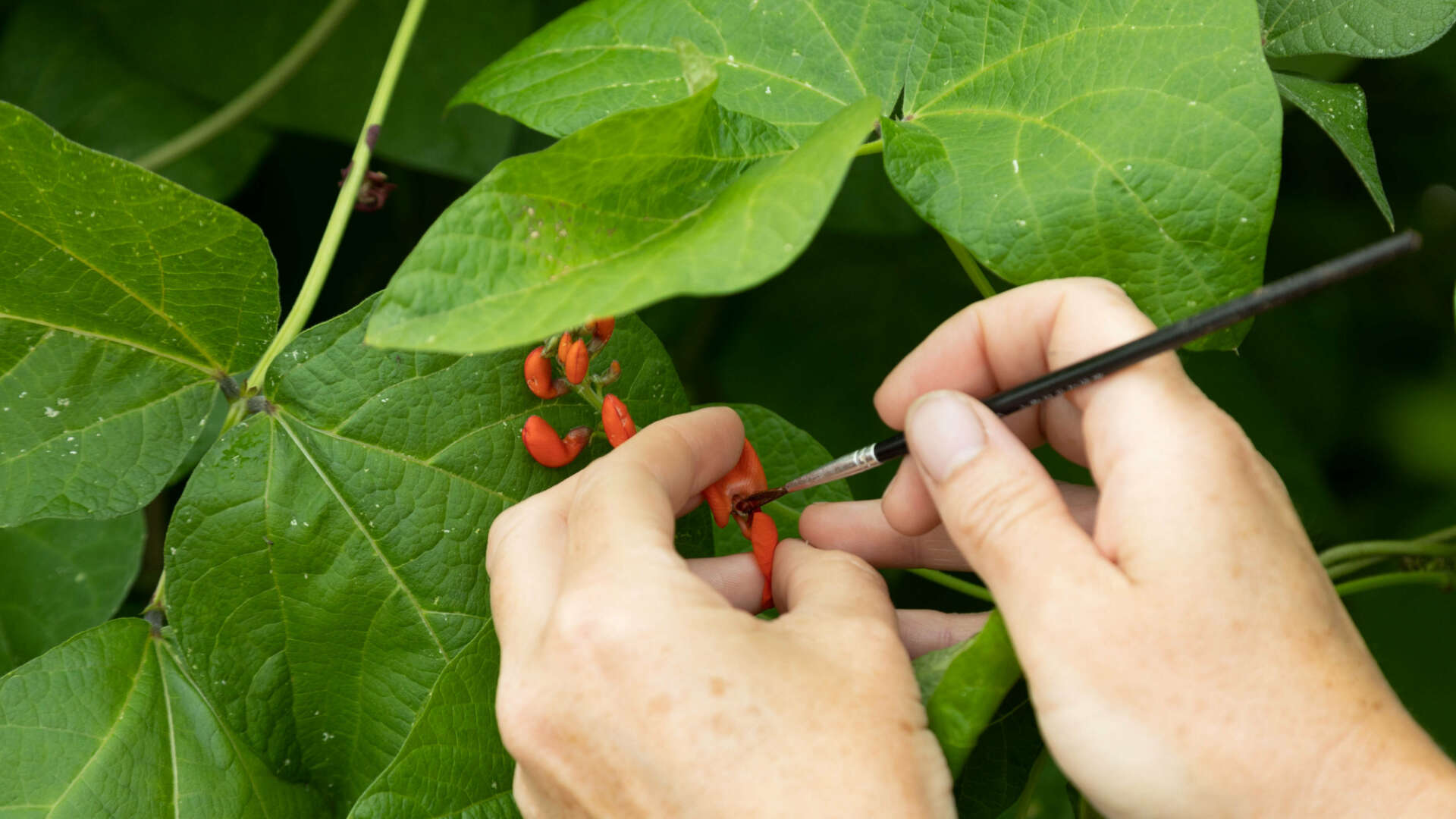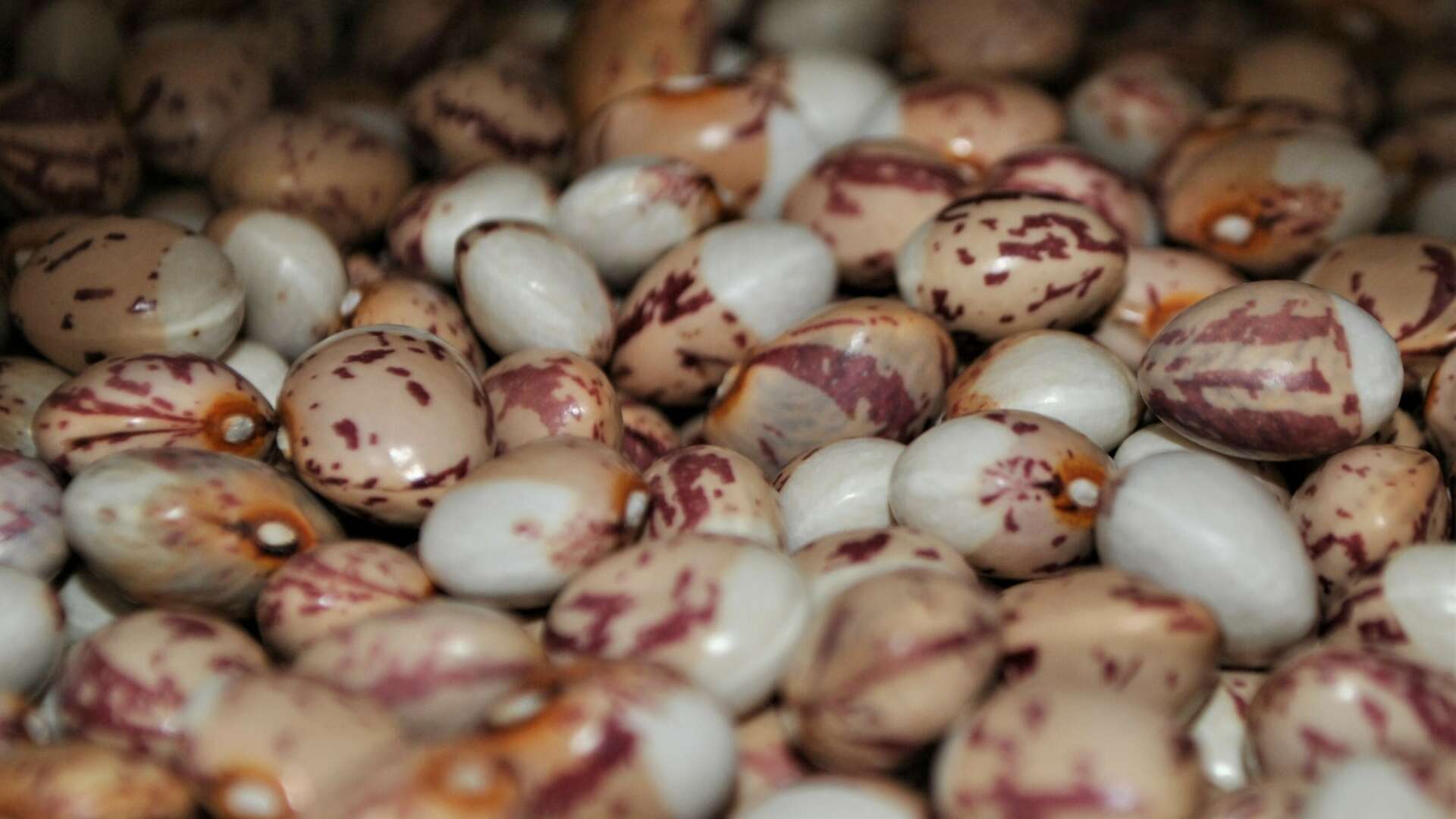
How the Heritage Seed Library works
The Heritage Seed Library (HSL) maintains the national collection of heritage vegetables and conserves vegetable varieties that are not widely available. We are not a gene bank and all of our collection, once we have enough seed, is made available for our members to grow and enjoy.
The collection consists of mainly European varieties, including:
- Rare landrace varieties, which are adapted to specific growing conditions.
- Heirloom varieties that have been saved over many generations.
- Varieties that have been dropped from popular seed catalogues and are no longer available to buy.
The Heritage Seed Library currently holds approximately 800 accessions of open-pollinated [^1] varieties.
These varieties have been donated by HSL members or other members of the public, sourced through past HSL projects such as Sowing New Seeds, or passed to us by seed companies who are no longer maintaining them.
Each year, approximately 150 varieties within the collection are chosen for inclusion in the Heritage Seed Library Seed List. Subscribing HSL members receive the list annually in December, from which they can choose six free packets of seeds until the list 'closes' at the end of February. Members joining after this date will be sent a selection of seeds with their welcome pack while stocks last.
Click here to see this year's seed list
You may also like


Who grows the heritage seed?
Seed from the chosen varieties is harvested from vegetables grown by Garden Organic's Heritage Seed Library (HSL) team at Ryton Organic Gardens and by our volunteer Seed Guardians.
Seed Guardians are HSL members who have decided to take on the extra responsibility of growing seed for us. They make an extremely important and highly valued contribution to our heritage conservation work, supplying approximately half of the seed available for distribution each year.
We’re feel privileged that seeds from our Heritage Seed Library are planted and nurtured at Highgrove each year. In a recent Sunday Telegraph article, writer Clare Hargreaves describes how some of the distinct varieties from our National Collection are grown.
Get involved
There are a number of ways you can get involved and support the work of the Heritage Seed Library:
- Become a member Garden Organic members can add Heritage Seed Library membership for just £21 a year. In addition to the benefits you receive as a Garden Organic member you will also receive the Heritage Seed Library Seed List. The Seed List is sent out annually in December and members have until the end of February to choose up to six varieties. Members joining outside of this period will be sent some seeds with their welcome pack whilst stocks last.
- Please note that due to import restrictions we can only send seed requests to addresses in Great Britain (England, Wales and Scotland). We are currently unable to send seed to Northern Ireland. Individuals living outside of Great Britain are welcome to join the Heritage Seed Library to support this valuable work but will be unable to receive seeds.
- Become a Seed Guardian Garden Organic Heritage Seed Library members can volunteer to support us by producing, saving, and returning seed to us as a Seed Guardian. Please get in touch if you're a home grower, school, community, or organisation.
- Are you a public garden? Did you know we work with historic kitchen gardens up and down the country to get heritage varieties growing back where they belong. Get in touch with us.
You may also like

What are the benefits of growing Heritage Seed Library seed?
Whether you're a seasoned gardener or a complete beginner, you can enjoy the benefits of growing vegetable varieties from the seed library. By growing HSL seed, you can:
- Support the conservation of unusual vegetable varieties for future generations
increasing biodiversity in your garden. - Save your own seeds from one generation to the next - our open-pollinated varieties, unlike F1 hybrids, will come true-to-type.
- Help to maintain genetic diversity within vegetable crops, increasing our resilience to current and future pressures.
You can explore the Garden Organic website for tips on growing organically and then get started with our heritage seeds after becoming a member. We also encourage you to save seed from the vegetables you grow for your own use. Advice on how to do this can be found in the Seed Saving Guidelines.
